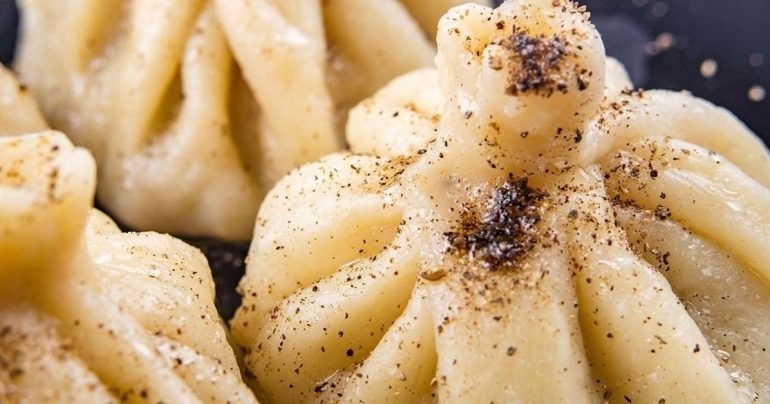At the height of summer, Tbilisi is a heat trap. Ringed on three sides by an amphitheatre of mountains, the Georgian capital sits in a valley where stifling, humid air collects. Right up until evening, just traversing the city can be a life-sapping slog.
Walking the streets in June, it is surprising, then, to see families sit at lunchtime around restaurant tables piled high with swollen, boiled dumplings, named khinkali. Each is almost the size of a tennis ball, and nearly bursting with meat, spices, herbs and all the juices. Despite Georgia’s reputation as the birthplace of wine, a frosty beer is understandably the preferred summer accompaniment.
Georgia is seeing its visitor numbers boom, more than doubling since 2012, to more than 8 million last year, with half of all trips to Tbilisi. Many travellers return home raving about discovering one of Europe’s great underappreciated cuisines.
Despite generations of 20th-Century Soviet rule when food and wine production was strictly standardised, and through the brutal poverty unleashed by the country’s transition to capitalism in the 1990s, Georgia’s distinctive recipes have been passed down through families.
At Tbilisi restaurant Sofia Melnikova’s Fantastic Douqan, chef Lena Ezieshvili makes some of Tbilisi’s most celebrated khinkali from a Tushetian recipe that mixes seven parts beef to three parts pork, adding coriander, pepper and cumin.
But one of Georgia’s best-known chefs, Tekuna Gachechiladze, said: “I came up with the idea of the khinkali soup, which has got the same dumplings, but much smaller: one bite with … a double broth – broth inside and a spicy broth”. Her soup became a bestseller and has been among a range of Gachechiladze innovations now emulated on the menus of more traditional Georgian restaurants.
Source: BBC













